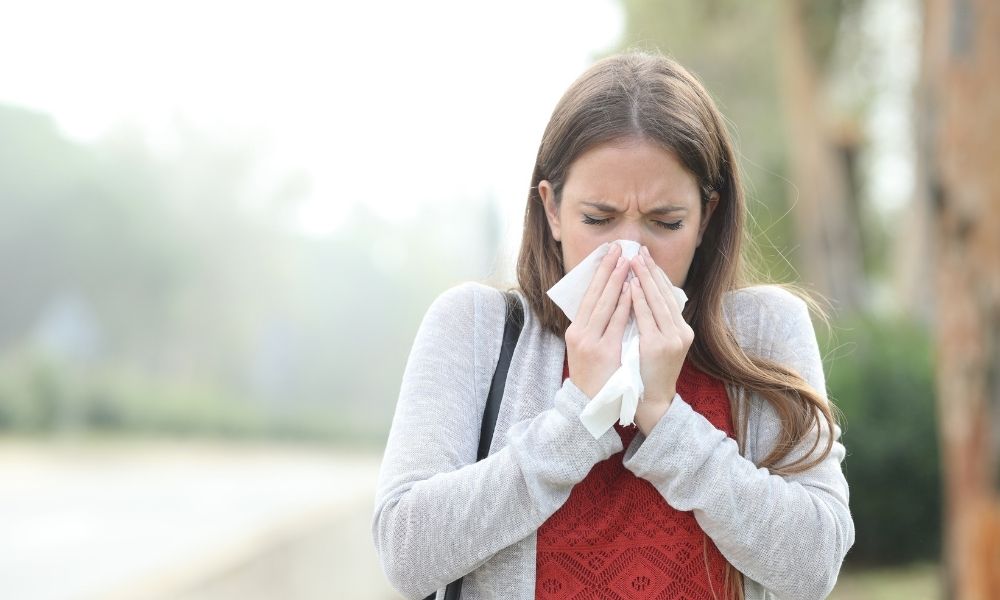Did you eat a meal you used to eat with no problem, and suddenly it made you break out in hives? Or did you go on a walk on a lovely sunny day, and you left sneezing and sniffling? If you’ve never had these problems before, you might be in disbelief and ask yourself, “can allergies and even anaphylaxis develop later in life?” You’re experiencing adult-onset allergies, and yes, adults can develop allergies later in life.
In this article, we’ll explain how allergies develop, why allergies develop in adulthood, and tips for treating your flare-ups.
What Are Adult-Onset Allergies?
Adult-onset allergies are allergies that manifest later in life. Allergies can develop from young adulthood to senior years. Typically, if you lived through your 20s without any new allergies or allergy symptoms, the chances of developing a new allergy are low.
How Allergies Develop in Adulthood
Most people typically develop allergy symptoms at a young age, outgrow their allergies, and become tolerant around their 20s or 30s. But it’s possible to develop an allergy or become allergic to something at any point in your lifetime. There isn’t clear reasoning as to why or how allergies develop in adulthood. Still, researchers believe that having one severe allergic reaction or symptoms during childhood can increase your chances of developing allergies as an adult.
Other possible triggers for adult-onset allergies include:
- If you had a skin condition, like eczema, as a child
- If you had a small exposure to an allergen as a child
- If you relocated to a new location or workplace with new allergens
- If you have a reduced immune system function and you come into contact with allergens
- If you have a pet for the first time
Possible Treatments for Allergies
Developing seasonal or pollen allergies later in life doesn’t have to be a complete game changer. But you should treat allergies of all severities. Here are some possible ways to treat your allergies, from seasonal allergies to severe food or contact allergies:
- Get a skin prick test: This test can help you see what specific allergens trigger your reactions
- Tell people around you about your allergies: Just in case you come into contact with a possible trigger, tell the people around you so that they know how to treat you
- Keep an EpiPen nearby: Having an EpiPen is essential if you interact with an allergy trigger
- Take antihistamines: Zyrtec or Benadryl can reduce your symptoms or keep them under control
- Consider allergy shots: Immunotherapy can gradually build your immunity within a few years of regularly getting shots
Yes, adults can develop allergies later in life. Some allergy symptoms are mild and require simple treatment, such as taking medication, while some symptoms are life-threatening.
If you’re dealing with new allergy symptoms or persistent allergy symptoms, we encourage you to reach out to Allergy & ENT Associates. Our allergy clinic near Houston provides professional treatment in allergies, asthma, and other severe allergies requiring special care. Book an appointment with us today!

